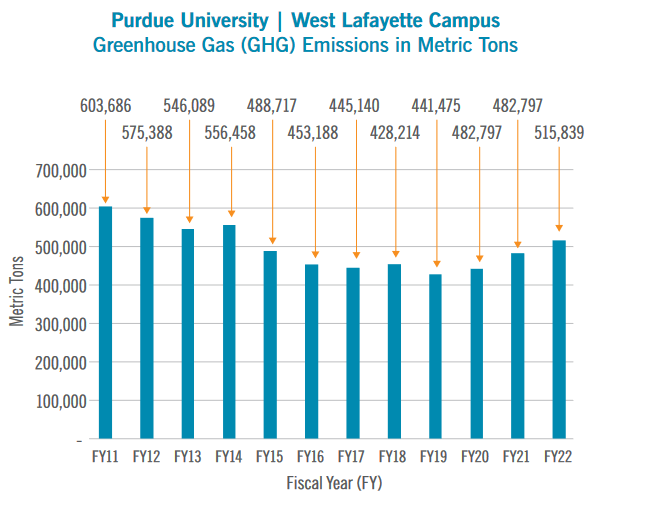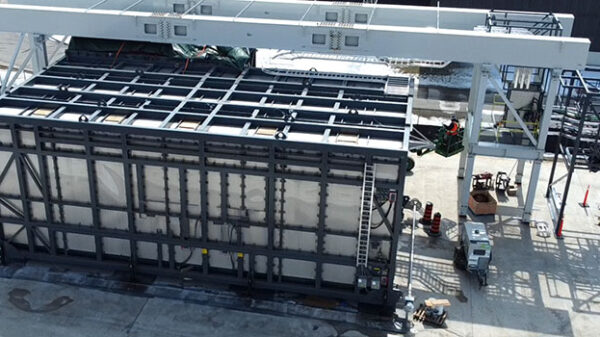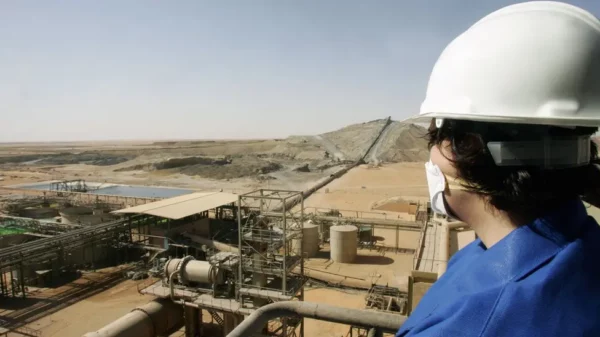Purdue University and energy giant Duke Energy (NYSE: DUK) jointly issued an interim report emphasizing the considerable potential of small modular reactors as an emerging technology.
Released on Thursday, the report highlights their viability as a carbon-free option that warrants further exploration to effectively address Purdue University’s future power requirements.
The one year study aimed to determine if these advanced nuclear technologies could potentially provide power to Purdue University’s West Lafayette campus and generate surplus energy for Indiana’s electric grid in the 2030s and for the foreseeable future.
In the interim report released by Purdue University and Duke Energy, it was clarified that no specific technology has been chosen, nor has any decision been made regarding the construction of a new nuclear plant within Purdue University or Duke Energy’s Indiana system.
The report affirmed the potential of small modular reactors as a promising and carbon-free energy option that warrants further investigation. Small modular reactors possess the advantage of continuous operation and the ability to adjust their energy output to meet varying power demands.
This characteristic makes them a complementary resource to renewable energy sources, such as wind and solar power, thereby contributing to the reliability of the energy system as these renewables gain a larger share of the generation mix.

Progress the university has made on reducing greenhouse gas emissions from fiscal years 2011-2022. SMRs could help make zero carbon dioxide emissions a reality for the campus. Image from SMR study report.
Read more: California extends nuclear facility permit for five more years
Read more: The Mugglehead technology roundup: the future is nuclear
SMR complementary to other renewable energy sources
Furthermore, small modular reactor designs incorporate enhanced safety features and exhibit a simplified structure compared to traditional nuclear plants, which translates into easier, faster, and more cost-effective construction processes.
“Our early findings show that advanced nuclear technology presents a potential path to zero emissions for our university, and we intend to continue our teamwork with Duke Energy in the next phase of the study,” said Mung Chiang, Purdue University president.
“The persistent collaboration among Duke Energy, Purdue University and world-renowned energy and policy experts demonstrates the critical importance of this exploration into advanced nuclear energy and what it could mean not only for our campus, but also the community, state and nation.”
Anticipated to be operational in the United States later in this decade, first-of-a-kind small modular reactors are being supported by federal government funding for multiple projects.
These reactors offer notable economic benefits, including the generation of substantial tax revenues for local communities, the creation of numerous temporary construction jobs, and the establishment of several permanent high-wage positions.
Additionally, they have the potential to attract private companies to Indiana, promoting economic growth and expansion. While advanced nuclear development is supported by both federal and state legislation, it is important to acknowledge that the federal licensing process for such projects is intricate and time-consuming.
To streamline the development of small modular reactors, it is necessary to implement efficient approaches to planning, design, construction, and financing.
Read more: Westinghouse releases AP300 small modular nuclear reactor
Read more: Nuclear plant shutdown would create devastating consequences in fossil fuel levels: MIT study
Report notes several challenges to SMR adoption
The interim report also addressed several challenges associated with the adoption of small modular reactors and made the following recommendations for future actions. To address these challenges and promote the development of advanced nuclear technologies, advocating for federal and state policy support and funding is crucial.
Federally, the report suggests the establishment of funding insurance options, increased investment in nuclear engineering and science workforce development programs, the initiation of a public-private advanced reactor development program, the implementation of a fuel availability program, and the continuation of federal tax credits.
At the state level, the report recommends providing additional support for initial planning and development activities for early adopters considering advanced nuclear technology. It also proposes the introduction of state tax credits specifically for small modular reactors and advanced reactors.
To further inform decision-making, the report emphasizes the need to conduct comprehensive cost and economic studies, site evaluations, and additional technology assessments. As first-of-a-kind projects progress through approvals and construction, Purdue University and Duke Energy will actively monitor developments.
Purdue University and Duke Energy released an interim report today that describes small modular reactors as one of the most promising emerging technologies. Learn more here: https://t.co/LlP7qVKbAp
— Duke Energy (@DukeEnergy) May 10, 2023
Read more: Canada launches $29.6M small modular reactor funding program to mitigate fossil fuels
Read more: Ontario Power Generation partners with tech firms to build small modular reactor
More cost and economic studies required: report
These monitoring efforts will involve quantifying the costs and economic benefits of advanced nuclear technologies, conducting further technology assessments, and evaluating potential sites for development. These evaluations will provide valuable insights to guide future advancements in the field of advanced nuclear power.
“The more we learn about small modular reactors, the more potential we see for this technology to help our university achieve a sustainable energy future and eliminate our dependence on fossil fuels,” said Michael B. Cline, senior vice president, Purdue University Administrative Operations.
The feasibility study conducted by Purdue University and Duke Energy was initially announced in April 2022. The report represents the culmination of extensive research and evaluation conducted by a team comprising nearly three dozen leaders and industry experts.
The team includes esteemed professionals serving on the executive and technical advisory committees, including renowned experts from around the world. The report is the result of hundreds of hours dedicated to this comprehensive study.
Duke Energy shares dropped 1.8 per cent on Thursday and are trading at $97.33 on the New York Stock Exchange.
.
Follow Joseph Morton on Twitter
joseph@mugglehead.com














